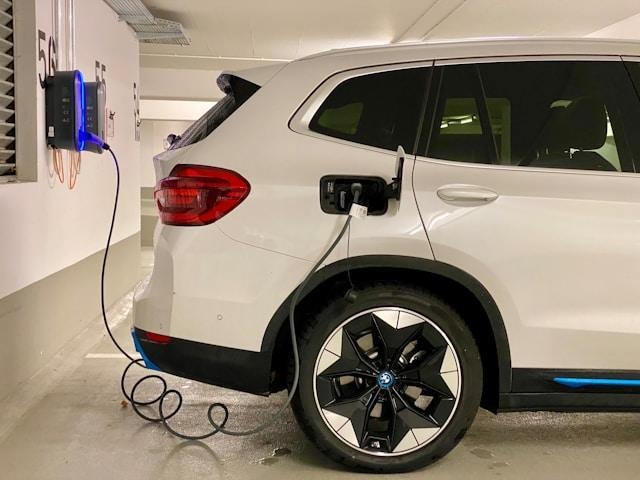Here's the thing about buying a car: it shouldn't feel like you're gambling with your life savings. Buying a used car can actually be one of the smartest financial moves you'll make, if you approach it right. This pre-owned vehicle blog strips away the dealer speak and gives you real, actionable intel that protects both your wallet and your peace of mind.
You're about to learn exactly how experienced buyers consistently land dependable rides for thousands less than the other guy. Ready? Let's jump in.
The used car world has been through a whirlwind lately, and these changes directly impact what you'll pay. Supply chain chaos hasn't magically disappeared, it's still affecting new car availability, which means demand for pre-owned vehicles remains stubbornly high. But here's where it gets interesting for you.
Inventory levels bounce around more than you'd expect. One month there's plenty, the next it's slim pickings. That new car shortage keeps funneling shoppers toward used vehicles, propping up prices above what we considered normal before 2020. But timing still matters, winter shopping typically rewards patience with better deals when showroom traffic slows.
Now, electric vehicles are shaking things up in unexpected ways. As EVs gain traction, dependable gas-powered cars aren't losing value like some predicted. Plenty of folks aren't sold on charging infrastructure yet, so traditional engines hold their ground surprisingly well.
Waxahachie, Texas gives you something special, small-town pricing with Dallas-Fort Worth access just up the road. Population growth has strengthened the local automotive scene without inflating prices to big-city levels.
Shopping for waxahachie used cars means you're tapping into lower operating costs that dealerships pass along to customers, plus you get solid inventory selection. Local dealers here deliver something corporate chains struggle with: genuine personal attention that transforms the buying experience, especially if this is your first rodeo.
CPO programs sound appealing, and they are, if you're willing to pay for that security blanket. Expect to spend 10-20% more than you would for the same car without certification. Is it worth it? Depends on your risk tolerance. Traditional used vehicles demand homework on your end, but they reward that effort with noticeably better pricing.
The warranty situation tells the whole story. CPO purchases come bundled with powertrain coverage and roadside help that you simply won't get buying traditionally.
Sticker price is just the beginning, the real story unfolds over months and years of ownership. These tips for choosing used cars begin with brutal honesty about what you can actually afford, not fantasy budgeting.
Smart money says transportation shouldn't consume more than 10% of your monthly income when you factor in insurance, gas, maintenance, and all the rest. For instance, monthly income of $6,000? Keep your total car expenses at $600 or below.
Insurance throws curveballs depending on what you drive. That sporty two-door might look amazing, but it'll hammer your premium compared to a practical sedan. Get actual quotes before you fall in love with a specific car, surprises here hurt. And those EPA fuel estimates? Calculate based on your real driving habits, not laboratory conditions that nobody actually experiences.
Walking into a dealership with financing already locked in completely changes the dynamic. You're not hoping someone will take a chance on you, you're a buyer with money ready to spend. Credit unions often beat dealer rates, though local dealers move enough volume that banks give them negotiating leverage most individuals can't match, which sometimes produces competitive offers.
Pull your credit score about three months before you start shopping. Errors happen, and fixing them takes time. A 50-point difference translates to serious money over the life of your loan, we're talking thousands.
Mastering how to buy a pre-owned car with intelligent financing separates people who get great deals from those who overpay for years.
Now that your budget's nailed down, match features to reality, not Instagram fantasies. The right vehicle supports how you actually live, not how you imagine living.
Commuters need efficiency and comfort more than hauling capacity. Parents prioritize space and safety scores. Weather matters enormously, all-wheel drive adds expense and maintenance that Floridians don't need but northerners can't live without.
Be honest about parking. That massive truck feels powerful until you're hunting for spaces twice daily. And those third-row seats? If you only need them at Thanksgiving, maybe reconsider.
Some brands simply outlast others, the data proves it. Japanese automakers traditionally dominate reliability charts, though certain Korean and American models now run neck-and-neck. Focus on vehicles known for hitting 200,000 miles without catastrophic repairs. They cost a bit more initially but save you a fortune long-term.
Consumer Reports publish detailed reliability information worth studying before test-driving anything. Finding the best used cars to buy means valuing proven dependability over gimmicky features.
A car's past writes its future. Digging into history prevents painful, expensive surprises down the road. Reports aren't flawless, but they're absolutely necessary.
Single-owner vehicles with complete maintenance logs usually indicate careful stewardship. Rapid ownership turnover screams mechanical problems or title issues. Former rental cars receive regular maintenance but take abuse, creating trade-offs worth weighing.
Lease returns often represent solid value, drivers avoided mileage penalties and returned them in reasonable shape. These ownership patterns separate well-cared-for gems from lurking nightmares.
Research gets you far, but nothing replaces physical inspection by skilled mechanics and your personal evaluation. This final step catches what paperwork misses.
Independent mechanics charge $100-200 for thorough pre-purchase inspections that frequently save thousands by uncovering problems beforehand. They'll examine frame integrity, engine leaks, transmission health, and suspension wear that signals neglected maintenance.
For anything over seven years old, request diagnostic scans revealing pending trouble codes and electronic system conditions. Certain problems only show up under specific circumstances that quick test drives won't reproduce.
Plan 30-minute drives covering highway merging, city traffic, and parking situations. Listen carefully during acceleration and braking. Take each technology feature, climate control system, and power accessory for a test drive, any malfunctioning item can turn into a bargaining point or even a deal-breaker.
Cold engines reveal issues that warmed-up motors hide, so morning appointments work best. Trust your gut, if something feels wrong, it probably is.
Smart buying a used car blends thorough research, strategic patience, and good timing to maximize value while protecting yourself from risk. You've discovered how market forces shape pricing, why comprehensive inspections safeguard your investment, and which financing approaches strengthen your bargaining position.
The best used cars to buy align with your real-world lifestyle needs and proven track records, not just attractive styling or clever marketing. Trust the homework you've done, walk away from sketchy deals without hesitation, and remember, the right vehicle justifies the wait. Rushing produces regret. Preparation delivers satisfaction and years of dependable transportation ahead.
What credit score do I need for a used car loan?
Most lenders want scores above 660 for competitive rates, though you might qualify for subprime financing down to 580. Scores above 720 unlock the best rates available, potentially saving thousands through reduced interest over your loan's lifetime.
How many miles are too many for a used car?
Modern vehicles routinely surpass 200,000 miles with proper care. Focus on annual mileage, 12,000 to 15,000 is typical, and maintenance consistency rather than raw odometer numbers. A meticulously maintained 100,000-mile car frequently outperforms a neglected 50,000-mile vehicle by a wide margin.
Is buying from dealers better than private sellers?
Dealerships provide convenience, financing arrangements, and limited warranties, but you'll pay premium prices. Private sellers usually offer better deals but demand more legwork and mechanical savvy. Your comfort level with negotiations and financing needs should guide this decision.




Want to add a comment?